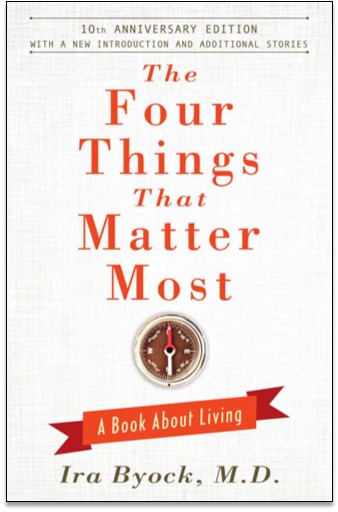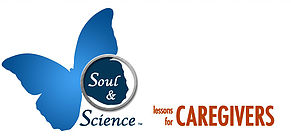BOOKS

The Grace in Dying
– Kathleen D. Singh, 2000
 In this brilliantly conceived and beautifully written book, Kathleen Dowling Singh illuminates the profound psychological and spiritual transformations experiences by the dying as the natural process of death reconnects them with the source of their being. Examining the end of life in the light of current psychological understanding, religious wisdom, and compassionate medical science, The Grace of Dying offers a fresh, deeply comforting message of hope and courage as we contemplate the meaning of our mortality.
In this brilliantly conceived and beautifully written book, Kathleen Dowling Singh illuminates the profound psychological and spiritual transformations experiences by the dying as the natural process of death reconnects them with the source of their being. Examining the end of life in the light of current psychological understanding, religious wisdom, and compassionate medical science, The Grace of Dying offers a fresh, deeply comforting message of hope and courage as we contemplate the meaning of our mortality.
While the prevailing Western medical tradition has seen death as an enemy to be fought and overcome, Singh offers a richer and more rewarding path of understanding. Combining extensive training and education in developmental psychology with profound spiritual insight, she balances expert analysis with moving accounts drawn from her experiences working with hundreds of dying patients at a large hospice.
Singh moves beyond the five stages of dying revealed in Kübler-Ross’s classic On Death and Dying, and finds in the “nearing death experience” even more significant and forming stages of surrender and transcendence. These stages involve the qualities of grace: letting go, radiance, focusing inward, silence, a sense of the sacred, wisdom, intensity, and, in the end, a merging with Spirit. Through this intense process, we come to experience at last the reality of our true self, which transcends our finite ego and bodily existence, and our merging with the source of being from which we originated. Dying is safe.
In clear, nontechnical language, Singh reveals the transformations that come with dying, using the vocabulary of growing Western, as well as Eastern, wisdom.
Written for those aware that their life is coming to an end, those who care for the dying, and, ultimately, for all of us who inevitably face our own death and the deaths of the people we love, The Grace in Dying reveals that dying is the most transforming, powerful, and spiritually rich of life’s experiences.
Being with Dying: Cultivating Compassion and Fearlessness in the Presence of Death
–Joan Halifax, 2009
 The Buddhist approach to death can be of great benefit to people of all backgrounds—as has been demonstrated time and again in Joan Halifax’s decades of work with the dying and their caregivers. Inspired by traditional Buddhist teachings, her work is a source of wisdom for all those who are charged with a dying person’s care, facing their own death, or wishing to explore and contemplate the transformative power of the dying process. Her teachings affirm that we can open and contact our inner strength, and that we can help others who are suffering to do the same.
The Buddhist approach to death can be of great benefit to people of all backgrounds—as has been demonstrated time and again in Joan Halifax’s decades of work with the dying and their caregivers. Inspired by traditional Buddhist teachings, her work is a source of wisdom for all those who are charged with a dying person’s care, facing their own death, or wishing to explore and contemplate the transformative power of the dying process. Her teachings affirm that we can open and contact our inner strength, and that we can help others who are suffering to do the same.
Sacred Dying: Creating Rituals for Embracing the End of Life
–Megory Anderson, 2003
 Death may be inevitable, but dying alone or in fear does not have to be. Sacred Dying is theologian Megory Anderson’s essential testimonial and handbook for creating a dignified, peaceful, and more sacred end to life. Anderson includes a section with many prayers and poems from various traditions, and shows how to use personalized and creative rituals to help those dying prepare for their death and to bring a sense of peace, reconciliation, and acceptance both to themselves and to the loved ones they leave behind. She discusses all aspects of this final transition, including how to help a dying person put “unfinished business” to rest; using massage to help the dying let go of his or her body; and how to use music to help the dying focus on specific times, places, or events. For this first-ever paperback edition, she adds a chapter on what can be done after death to help move the soul along. Intended for those who are going through the death of a loved one as well as those facing death personally, Sacred Dying facilitates creating a setting where death is experienced as it should be—with honor, respect, and sacredness.
Death may be inevitable, but dying alone or in fear does not have to be. Sacred Dying is theologian Megory Anderson’s essential testimonial and handbook for creating a dignified, peaceful, and more sacred end to life. Anderson includes a section with many prayers and poems from various traditions, and shows how to use personalized and creative rituals to help those dying prepare for their death and to bring a sense of peace, reconciliation, and acceptance both to themselves and to the loved ones they leave behind. She discusses all aspects of this final transition, including how to help a dying person put “unfinished business” to rest; using massage to help the dying let go of his or her body; and how to use music to help the dying focus on specific times, places, or events. For this first-ever paperback edition, she adds a chapter on what can be done after death to help move the soul along. Intended for those who are going through the death of a loved one as well as those facing death personally, Sacred Dying facilitates creating a setting where death is experienced as it should be—with honor, respect, and sacredness.
Caring for the Dying: The Doula Approach to a Meaningful Death
–Henry Fersko-Weiss LCSW, 2017
 Caring for the Dying describes a whole new way to approach death and dying. It explores how the dying and their families can bring deep meaning and great comfort to the care given at the end of a life. Created by Henry Fersko-Weiss, the end-of-life doula model is adapted from the work of birth doulas and helps the dying to find meaning in their life, express that meaning in powerful and beautiful legacies, and plan for the final days. The approach calls for around-the-clock vigil care, so the dying person and their family have the emotional and spiritual support they need along with guidance on signs and symptoms of dying. It also covers the work of reprocessing a death with the family afterward and the early work of grieving.
Caring for the Dying describes a whole new way to approach death and dying. It explores how the dying and their families can bring deep meaning and great comfort to the care given at the end of a life. Created by Henry Fersko-Weiss, the end-of-life doula model is adapted from the work of birth doulas and helps the dying to find meaning in their life, express that meaning in powerful and beautiful legacies, and plan for the final days. The approach calls for around-the-clock vigil care, so the dying person and their family have the emotional and spiritual support they need along with guidance on signs and symptoms of dying. It also covers the work of reprocessing a death with the family afterward and the early work of grieving.
Emphasis is placed on the space around the dying person and encourages the use of touch, guided imagery, and ritual during the dying process. Throughout the book Fersko-Weiss tells amazing and encouraging stories of the people he has cared for, as well as stories that come from doulas he has trained and worked with over the years.
What is unique about this book is the well-conceived and thorough approach it describes to working skillfully with the dying. The guidance provided can help a dying person, their family, and caregivers to transform the dying experience from one of fear and despair into one that is uplifting and even life affirming. You will see death in a new light and gain a different perspective on how to help the dying. It may even change the way you live your life right now.
The Four Things That Matter Most
―Ira Byock MD, Random House/Atria Books, 2005
 Four simple phrases — “Please forgive me,” “I forgive you,” “Thank you,” and “I love you” — carry enormous power. In many ways, they contain the most powerful words in our language. These four phrases provide us with a clear path to emotional wellness; they guide us through the thickets of interpersonal difficulties to a conscious way of living that is full of integrity and grace.In The Four Things That Matter Most, Dr. Ira Byock, an international leader in palliative care, teaches us how to practice these life-affirming words in our day-to-day lives. Too often we assume that the people we love really know we love them. Dr. Byock reveals the value of stating the obvious and provides insights into how we burden ourselves by hanging on to old grudges unconsciously and unnecessarily. He shows us how to avoid living with those awkward silences and uncomfortable issues that distance us from the people we love and erode our sense of well-being and joy. His insights and stories help us to forgive, appreciate, love, and celebrate one another more fully.
Four simple phrases — “Please forgive me,” “I forgive you,” “Thank you,” and “I love you” — carry enormous power. In many ways, they contain the most powerful words in our language. These four phrases provide us with a clear path to emotional wellness; they guide us through the thickets of interpersonal difficulties to a conscious way of living that is full of integrity and grace.In The Four Things That Matter Most, Dr. Ira Byock, an international leader in palliative care, teaches us how to practice these life-affirming words in our day-to-day lives. Too often we assume that the people we love really know we love them. Dr. Byock reveals the value of stating the obvious and provides insights into how we burden ourselves by hanging on to old grudges unconsciously and unnecessarily. He shows us how to avoid living with those awkward silences and uncomfortable issues that distance us from the people we love and erode our sense of well-being and joy. His insights and stories help us to forgive, appreciate, love, and celebrate one another more fully.
Awake at the Bedside: Contemplative Teachings on Palliative and End-of-Life Care
―Koshin Paley Ellison (Editor), Matt Weingast (Editor), 2016

 This book isn’t about dying. It’s about life and what life has to teach us. It’s about caring and what giving care really means.
This book isn’t about dying. It’s about life and what life has to teach us. It’s about caring and what giving care really means.